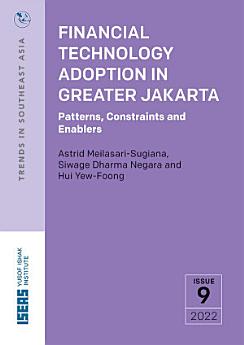Financial Technology Adoption in Greater Jakarta: Patterns, Constraints and Enablers
About this ebook
One key finding is that, in the Greater Jakarta region, socio-economic status as measured by income is not a key determinant of fintech adoption. This is likely due to the more developed and mature ICT infrastructure in the Greater Jakarta region, which makes fintech tools readily accessible.
However, the kinds of fintech tools that are more likely to be used—M-banking, E-wallet, Online Lending, Investment, Donations, and so on—are influenced by factors such as income, education, gender, age and occupation, suggesting that different fintech tools appeal to different groups in society according to their needs and resources.
Psychological factors that are important in the adoption of fintech include having many choices in the needed financial services and feeling in control. While fintech users are concerned about data leaks and fraud, this does not deter them from using fintech.
It may be anticipated that with the deepening of ICT infrastructure and public education on the safe use of fintech, fintech usage in Indonesia will continue to spread throughout the country.
Ratings and reviews
About the author
Astrid Meilasari-Sugiana is Lecturer at Bakrie University and the School of Government and Public Policy Indonesia, and Visiting Fellow at the ISEAS – Yusof Ishak Institute, Singapore.
Siwage Dharma Negara is Senior Fellow at the ISEAS – Yusof Ishak Institute, Singapore.
Hui Yew-Foong is Visiting Senior Fellow at the ISEAS – Yusof Ishak Institute, Singapore.









